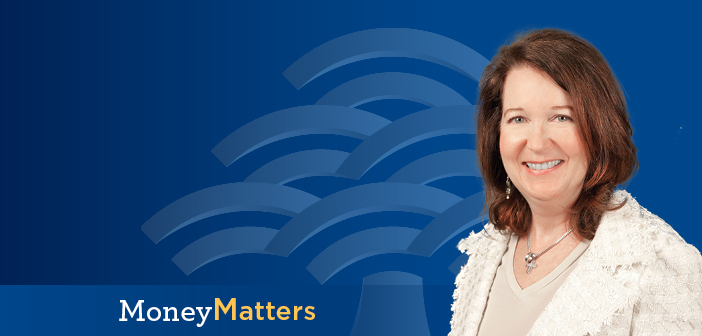To play the video, click here.
We all have habits—things we do routinely. From routines we do in preparation for a big family dinner, such as Thanksgiving, to everyday ones like brushing our teeth. Some habits are good, others, like eating too much junk food, less so. The same logic applies to money management. And, as with all bad habits, breaking them—in this case, changing unhelpful financial habits—can be tough. In fact, you might not even be aware that what you’re doing could be problematic. Here’s a great example of how difficult it can be to recognize or break bad money habits and adopt and sustain good ones.
At a recent talk we gave at a conference, we referenced a statistic that seemed surprising at first glance. Of employees who earn $100,000 or more, 15% frequently run out of money between paychecks.* We all, of course, run low on funds every so often because of unexpected expenses and emergencies. To run short on funds frequently may, however, suggest some underlying issue that goes beyond the occasional budget crisis. Given the rapidly rising cost of living in recent years, one likely factor could be the challenge of adjusting or breaking ingrained spending habits when income is suddenly no longer sufficient to support increased expenses.
The scenario I just spoke to reflects how difficult it can be to modify or change your behavior, be it health, financial or otherwise. And we could all do with some help. That’s why we’re proud to introduce a new resource for Members to help them throughout their financial journey and whenever they need support, advice, and motivation.
This resource is our Certified Credit Union Financial Counselors. These staff members are all experienced branch counselors and Member service representatives. They’ve gone through an intensive nine-month training course given by the America’s Credit Unions Organization to earn their certification, and there’s a team of them waiting to assist you with everyday guidance on money management. They can help you adopt or maintain beneficial financial habits and behaviors—and dispense with old ones that may be holding you back or harming you. They can also help you adjust to changing life stages, new circumstances, and unexpected issues with ongoing, judgment-free support. I liken them to athletic coaches. They work with you to get the best out of you—more than you imagined was possible on your own. I encourage you to give them a try. They are unconditionally there for you—a phone, email or Zoom call away. You can arrange an appointment by visiting our Financial Wellness page.
The last time I spoke to you, I promised an update on new Tulee Tools, so here we go. In the last few months, we’ve added Skip-A-Pay to make it easy for you to take a financial break from loan payments you have with the Credit Union. We’ve introduced Subscription Manager to help you track and manage your online subscriptions and cancel those you don’t need. Be on the lookout for even more Tulee Tools launching in the next month or two.
Please stay safe, and keep an eye out for fraudsters and scams—they are on the rise at this time of year—and I hope you have a wonderful rest of the year and a peaceful holiday season.
*PwC, “PwC’s 2023 Employee Financial Wellness Survey,” PWC.com. Accessed 20 September 2024.





